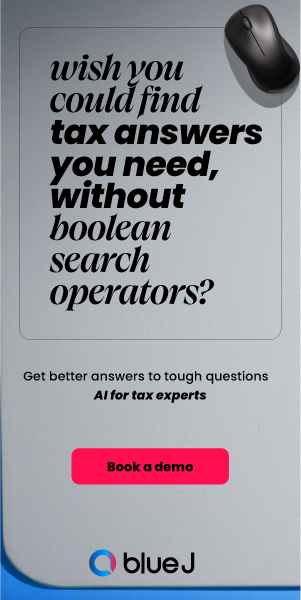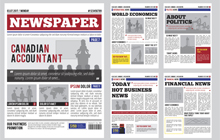Sunday News Roundup 22.03.20: Deloitte drops mandates, oligarchs, money laundering and more

Wrapping up the odds and ends in this week’s Canadian accounting news
Subscribe to our weekly newsletter and get all the week’s stories. Click here to sign up.
TORONTO, March 20, 2022 – The Globe and Mail had the scoop of the week in Canadian accounting when it reported that Deloitte Canada was reversing its COVID-19 vaccine mandate. Deloitte is the only firm among the Big Four and one of the few large companies in Canada to announce the reversal.
According to the Globe, “Deloitte Canada, which employs more than 10,000 people, said that starting March 21, proof of vaccination will no longer be required to enter any of its offices across Canada. It will also eliminate masking requirements in common spaces, although employees and clients going into company offices will still be required to complete a health-screening form to determine if they are displaying COVID-19 symptoms.”
As we have noted numerous times, COVID has been kind to Deloitte Digital, which won several high-profile and lucrative contracts during the pandemic. (Maclean’s Magazine felt we “crowed” about the contracts; while we’re happy to be quoted by Maclean’s, we have hardly been a cheerleader for any part of the profession.) So why is Deloitte doing the deed? One hypothesis gaining traction is Deloitte is worried about recruitment and retention on the audit side, but Deloitte did not join PwC Canada and KPMG Canada in rolling out summer time-off initiatives.
And now, on to the rest of the news from the past week in Canadian accounting.
Ukraine brings renewed focus on Canada’s tax transparency
The whole issue of Russian money-laundering has seen renewed interest recently due to Western sanctions over Ukraine. Sooner or later, someone was going to ask just how much Russian money has been laundered through Canada. Of course, we have no idea, because Canada has been turning a blind eye towards foreign corporate ownership for years. How much dirty money is propping up the Canadian housing market has been a subject for speculation for years and a beneficial ownership registry is not expected until 2025 (if ever).
In Canada’s weak transparency laws are being advertised to transnational tax-dodgers: new report, the Conservatives’ Adam Chambers has an honest take: “Canada is viewed as a safe place for criminals to hide money from illicit activities.” According to the Toronto Star and National Observer, Chambers noted that a “significant proportion of this money ends up in real estate, which is another factor that adds to the rising costs of real estate.”
And just today, Olivia Bowden in the Toronto Star asks, B.C. has a public land registry to fight money laundering in the housing market. Should Ontario? While some critics (including in Canadian Accountant) advocate for the exposure of financial crime “enablers” (e.g., accountants and lawyers), few are willing to ask the bigger question: How many governments actually welcome laundered money?
The Canadian accountant who owns Chelsea
And speaking of Russian oligarchs, have your read How a Toronto accountant became one of oligarch Roman Abramovich's closest associates (Financial Post)? Eugene Tenenbaum used to work for PwC Canada and then became national director of KPMG Russia back in the 1990s. Without spoiling this wonderful read, suffice it to say that Tenenbaum is now the owner of one of England’s storied football clubs, having “bought” Chelsea from Ambramovich.
In a similar vein is How this Russian oligarch sanctioned by Canada stands to benefit from the Scarborough subway expansion from the Toronto Star. This time, it’s Russian oligarch Oleg Deripaska, who “holds a minority stake in Strabag, the lead company on a team the Ontario government selected in May 2021 to design and dig the tunnels for the Scarborough subway.”
PCAOB Canadian accounting firm inspection
The US Public Company Accounting Oversight Board (PCAOB) released its first Canadian accounting firm inspection report of the year this past week: De Visser Gray LLP. Based in Vancouver, DVG should be well-known to Canadian Accountant readers, as it did quite well in gaining new audit clients back in 2020.
For context sake, the PCAOB released just eight inspection reports of Canadian auditors in all of 2021, so this may signal much more to come in 2022. And unlike Canadian regulator CPAB, the PCAOB publishes its findings for all to see, including the name of the firm, the number of audits selected, and the particular deficiencies of the audits.
A stock fraud checklist for tech firms
Al and Mark Rosen were back in Advisor’s Edge this past week, this time comparing the common factors in tech start-up frauds. The Rosens always help remind us that Canada is not the squeaky-clean land of business and balance sheets that some would have us believe. Using Theranos as a comparison, Al and Mark cite their own Canadian examples, and provide a checklist of common elements for investors.
Quick Hits
CRA looked to resume collection efforts in full ahead of tax season, documents show (Canadian Press)
What you need to know as the CRA cracks down on principal residence exemptions (Financial Post)
Big Four Accounting Firms Come Under Regulator’s Scrutiny (Wall Street Journal)
Tax and Spend: Delayed federal budgets undermining oversight of public spending, PBO warns (Globe and Mail)
War in Ukraine is the least of Chrystia Freeland’s budget woes (Toronto Star)
By Canadian Accountant staff.







(0) Comments